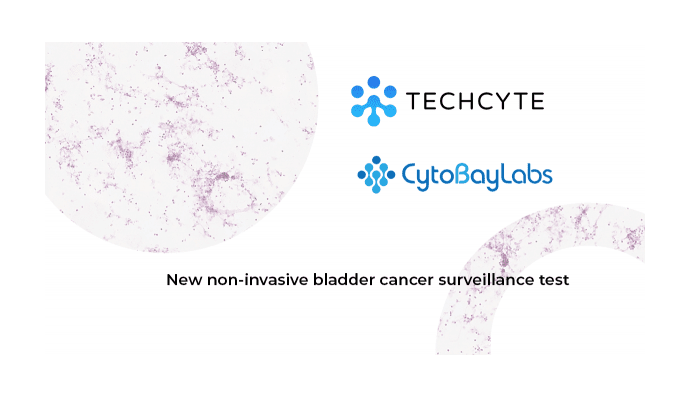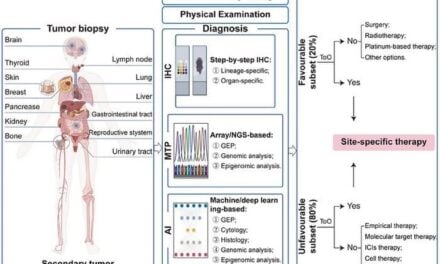To improve patient testing of recurrent bladder cancer, Techcyte and Cytobay are collaborating in the creation of a non-invasive test aimed at enhancing bladder cancer surveillance.
Bladder cancer is one of the most common cancers and has a high recurrence rate. After successful treatment, it is recommended that survivors be tested every three to six months for the first two years, every six to twelve months for years three to four, and then yearly from then on.
This invasive test for recurrent cancer is painful, time-consuming, and expensive. Despite its high risk of recurrence, less than half of patients actually follow these guidelines.
Cytobay was founded by Wenjiang Chu, MD, with the vision to develop a non-invasive methodology to diagnose cancer and monitor disease progression.
“Our novel technology enables the evaluation of single cell cytomorphologic and molecular profiles simultaneously, especially in clinical samples only containing a minimal amount of target cells,” Chu says. “We have automated the slide preparation staining process to highlight uroepithelial carcinoma cells and subsequently transform the landscape of bladder cancer diagnosis.”
Cytobay approached Techcyte to utilize its Clinical Pathology AI platform to analyze the cells and complete the diagnostic process.
“We are on the cutting edge of new non-invasive cancer diagnostics,” says Cytobay President and COO Mitchell Aicher. “Our collaboration with Techcyte will allow us to provide revolutionary, accurate and cost effective cancer diagnostics to those who need it most.”
The deep machine learning AI created by Techcyte will accurately and efficiently identify cancerous bladder cells in a fraction of the time and cost compared to current methods, the companies say. Techcyte’s technology is being used in laboratories for cervical cytology, bacteriology, hematology, and parasitology. This collaboration opens the door for Techcyte to become the first AI platform for bladder cancer diagnostics.
Studies show that 75% of bladder cancer is treatable if detected early.
“There is a big need for non-invasive, accurate, and quick diagnostic testing for bladder cancer,” says Techcyte CEO Ben Cahoon. “This collaboration allows us to make a big impact in cancer survivors’ lives using AI-driven diagnostics.”
AI validation studies are underway, with the product projected to be available winter of 2022.





